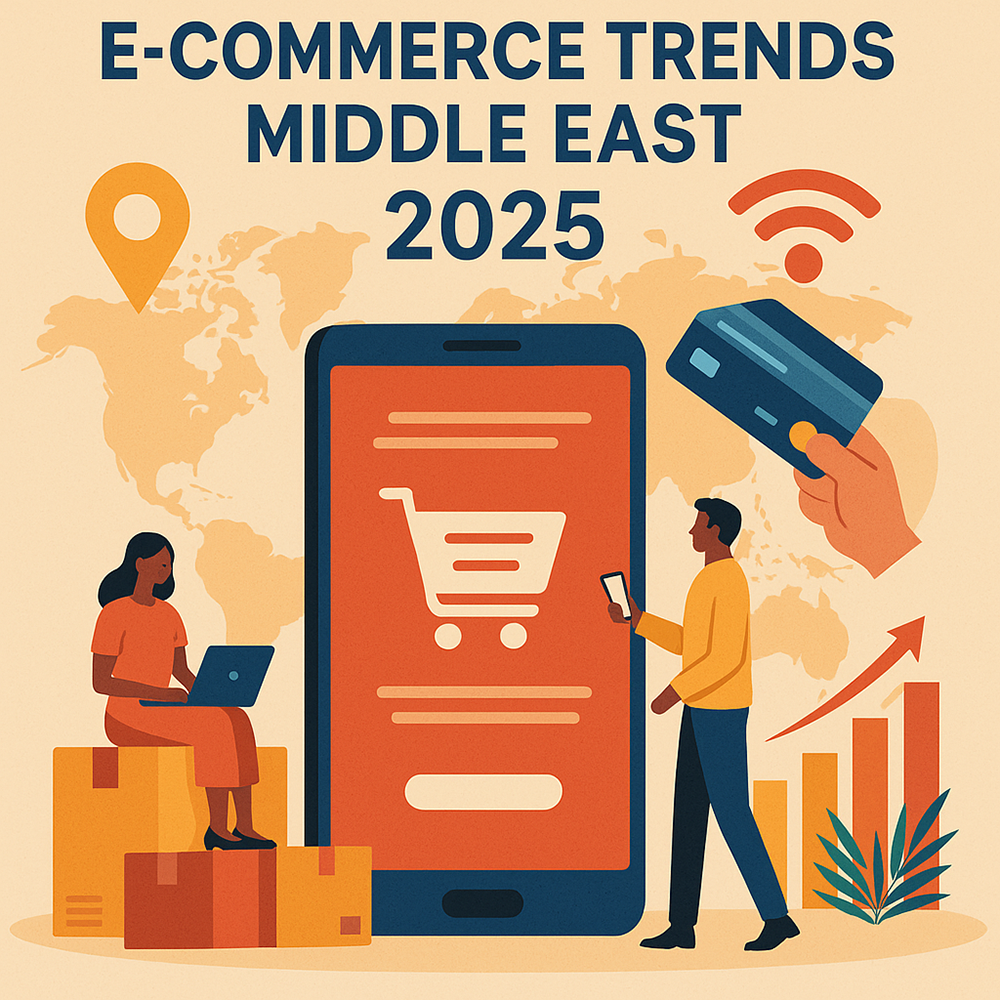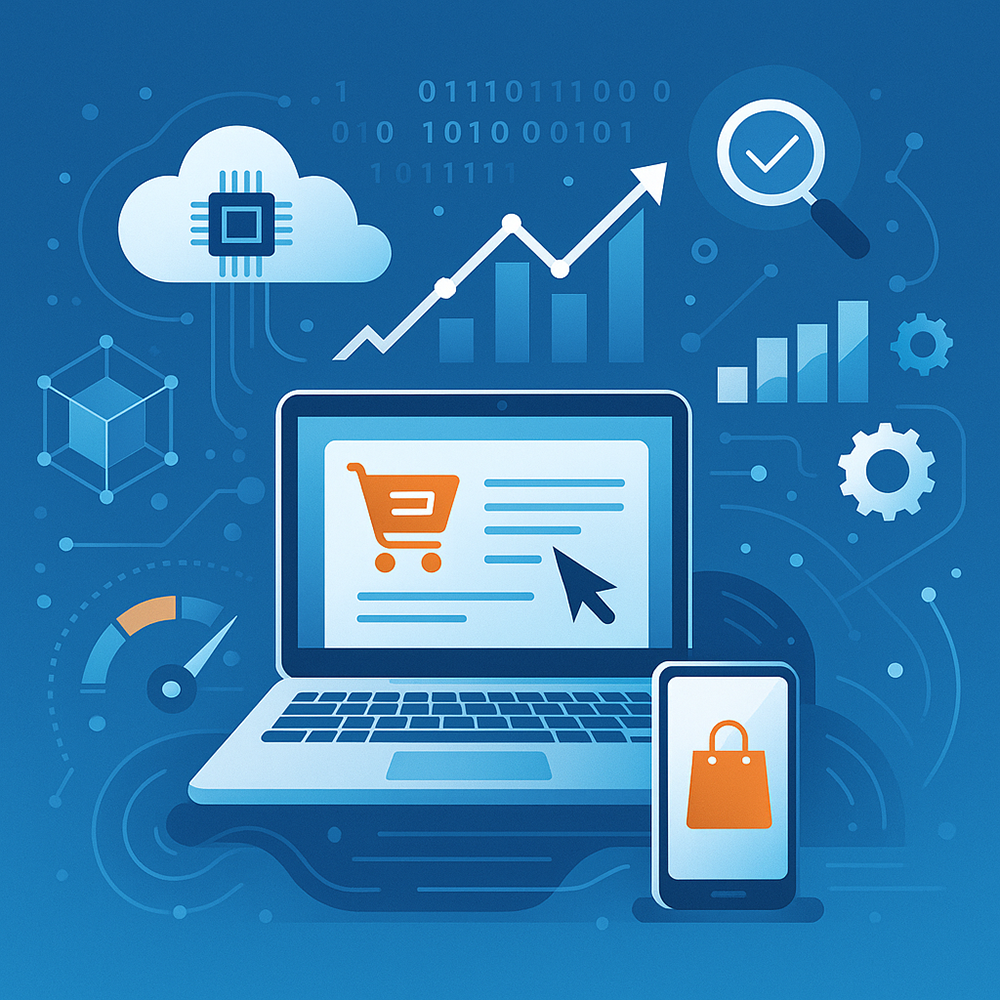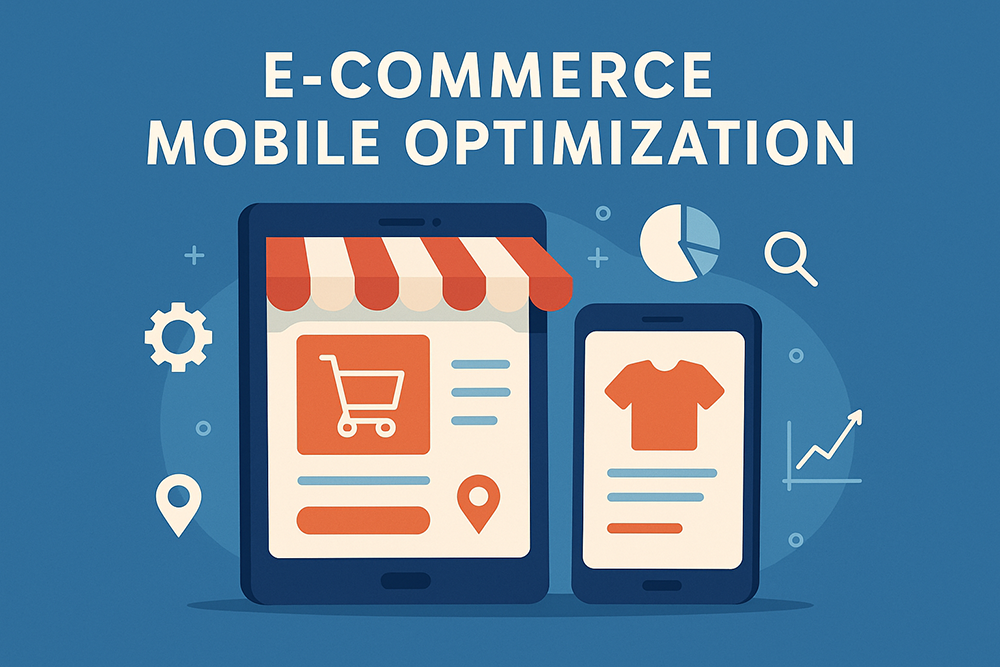The e-commerce market in the Middle East is a dynamic and rapidly expanding sector, poised for significant growth in 2025 and beyond. Driven by high internet penetration, a young and digitally native population, and supportive government initiatives, the region presents unique opportunities and challenges for online businesses. To stay ahead of the curve, it's crucial to understand the key e-commerce trends shaping this vibrant landscape.
1. Hyper-Personalization and AI-Driven Experiences
Customers in the Middle East expect highly personalized shopping experiences. AI and machine learning will play a pivotal role in delivering this, from personalized product recommendations and dynamic pricing to tailored marketing messages. E-commerce platforms will leverage AI to analyze customer behavior, preferences, and purchase history to create unique journeys for each user, fostering loyalty and increasing conversion rates.
2. Social Commerce and Live Shopping
Social media platforms are not just for brand building; they are becoming powerful sales channels. Social commerce, where purchases are made directly within social media apps, will continue to surge. Live shopping events, particularly popular in Asia, are gaining traction in the Middle East, allowing brands to showcase products in real-time, interact with customers, and drive impulse buys. Influencer marketing will remain a key component of this trend.
3. Mobile Commerce (M-commerce) Dominance
With smartphone penetration rates among the highest globally, mobile devices are the primary means of online shopping in the Middle East. E-commerce businesses must prioritize mobile-first design, ensuring seamless, fast, and intuitive experiences on smartphones and tablets. This includes optimizing for mobile payment methods and one-click checkout processes.
4. Flexible Payment Solutions, Including BNPL and Local Options
While traditional credit/debit cards are common, the demand for diverse payment options is growing. "Buy Now, Pay Later" (BNPL) services are becoming increasingly popular, offering consumers financial flexibility. Additionally, integrating local payment gateways like Mada (Saudi Arabia), KNET (Kuwait), and Fawry (Egypt), alongside cash-on-delivery (COD), remains crucial for broader market reach and trust.
5. Sustainable and Ethical E-commerce
A growing segment of consumers in the Middle East, particularly younger generations, are becoming more conscious about sustainability and ethical practices. E-commerce businesses that demonstrate commitment to eco-friendly packaging, responsible sourcing, fair labor practices, and transparent supply chains will gain a significant competitive advantage and resonate with this demographic.
6. Augmented Reality (AR) and Virtual Reality (VR) for Enhanced Shopping
AR and VR technologies are moving beyond novelty to become practical tools for enhancing the online shopping experience. "Try-before-you-buy" AR features for clothing, furniture, or makeup, and immersive VR showrooms, will help bridge the gap between online and offline shopping, reducing returns and increasing customer confidence.
7. Voice Commerce and Conversational AI
As smart speakers and voice assistants become more prevalent, voice commerce is an emerging trend. E-commerce platforms will need to optimize for voice search and integrate conversational AI chatbots to assist customers with product discovery, order tracking, and customer support, providing a more natural and efficient interaction.
8. Advanced Logistics and Last-Mile Delivery Optimization
Efficient and fast delivery is a key differentiator in the Middle East. E-commerce businesses will continue to invest in advanced logistics solutions, including automated warehouses, drone delivery (where feasible), and partnerships with local last-mile delivery specialists. Real-time tracking and flexible delivery options will be standard expectations.
9. Data Privacy and Security Compliance
With increasing digital transactions, data privacy and security are paramount. E-commerce businesses must adhere to international data protection regulations (like GDPR, even if not directly applicable, as a best practice) and local laws. Transparent data handling practices and robust cybersecurity measures will build customer trust and prevent breaches.
10. The Rise of Niche Marketplaces and D2C Brands
While large marketplaces dominate, there's a growing trend towards niche e-commerce platforms catering to specific interests (e.g., luxury goods, artisanal products, sustainable fashion). Simultaneously, Direct-to-Consumer (D2C) brands are bypassing traditional retail to build direct relationships with customers, offering unique products and personalized experiences. Both models thrive on strong digital strategies and customer engagement.
Navigating these trends successfully requires agility, innovation, and a deep understanding of the Middle East consumer. By embracing these shifts, businesses can unlock immense potential and secure a leading position in the region's thriving e-commerce landscape.
Ready to Elevate Your Business?
Whether you need a stunning new website, a powerful marketing strategy, or robust IT solutions, Lumora is here to help. Our team of experts in Dubai is ready to turn your vision into reality.
Contact Us Today

